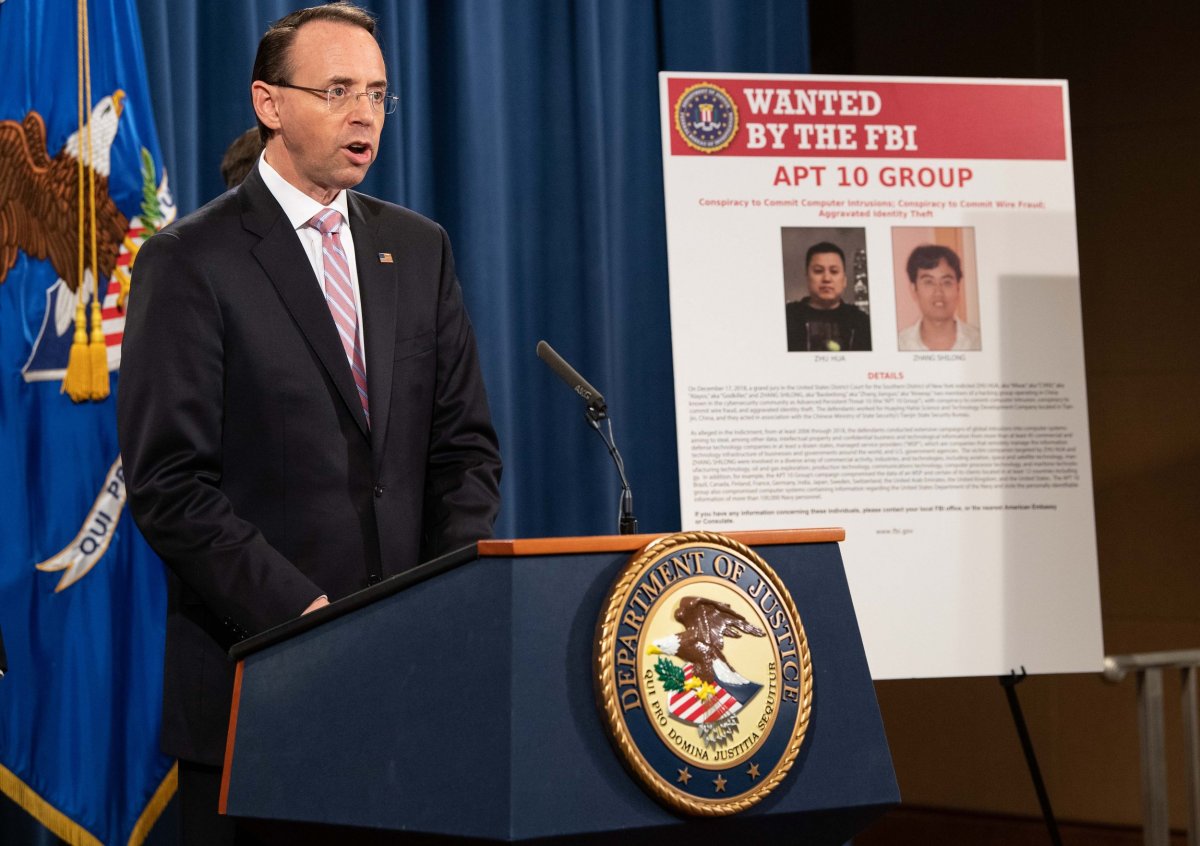China hit back at the U.S. Friday after the Justice Department brought charges against two of its citizens for alleged hacking offenses on behalf of Beijing.
Charges against the two men—Zhu Hua and Zhang Shilong—were announced by Deputy Attorney General Rod Rosenstein Thursday. They are accused of stealing U.S. trade secrets and a host of other sensitive information on behalf of Beijing's main intelligence agency, Associated Press explained.
China's Foreign Ministry spokesperson Hua Chunying denied the allegations, claiming, "The Chinese government has never participated in or supported anyone in stealing trade secrets in any way."
Instead, Hua suggested the charges were evidence of the U.S. attempting to undermine the development of other nations in an effort to maintain its superpower status. "The U.S. is a world superpower, and it's quite arrogant and selfish," she said during a press briefing.
Announcing the charges, Rosenstein explained that Zhu and Zhang are believed to belong to a group known as APT 10—named for its classification as an advanced persistent threat—that has links to China's Ministry of State Security.
The deputy attorney general said the group attacked so-called managed service providers, which are trusted to store, process and protect commercial data including intellectual property and other confidential information. The information stolen could give Chinese companies access to business secrets of competitors, offering an unfair advantage.
"It is unacceptable that we continue to uncover cybercrime committed by China against America and other nations," Rosenstein told reporters. "China will find it difficult to pretend that it is not responsible for these actions."
He noted that companies in 11 other nations—including Japan, the U.K. and India—were targeted by APT 10. More than 90 percent of Justice Department economic espionage cases over the past seven years involve China, he added, and more than two-thirds of trade secrets cases are connected to the country.
"China's state-sponsored actors are the most active perpetrators of economic espionage," FBI Director Chris Wray said. "While we welcome fair competition, we cannot and will not tolerate illegal hacking, stealing or cheating."
But Hua was stubborn in her denial. "They believe that a lie repeated a thousand times will become the truth, but I want to tell them that a lie is still a lie even after it has been repeated ten thousand times," she said. In a separate written statement, she claimed the U.S. was "fabricating facts."
The whereabouts of Zhu and Zhang are unknown. China does not have an extradition treaty with the U.S., meaning the two are highly unlikely to face the charges if they are in their home country.

Uncommon Knowledge
Newsweek is committed to challenging conventional wisdom and finding connections in the search for common ground.
Newsweek is committed to challenging conventional wisdom and finding connections in the search for common ground.
About the writer
David Brennan is Newsweek's Diplomatic Correspondent covering world politics and conflicts from London with a focus on NATO, the European ... Read more
To read how Newsweek uses AI as a newsroom tool, Click here.








